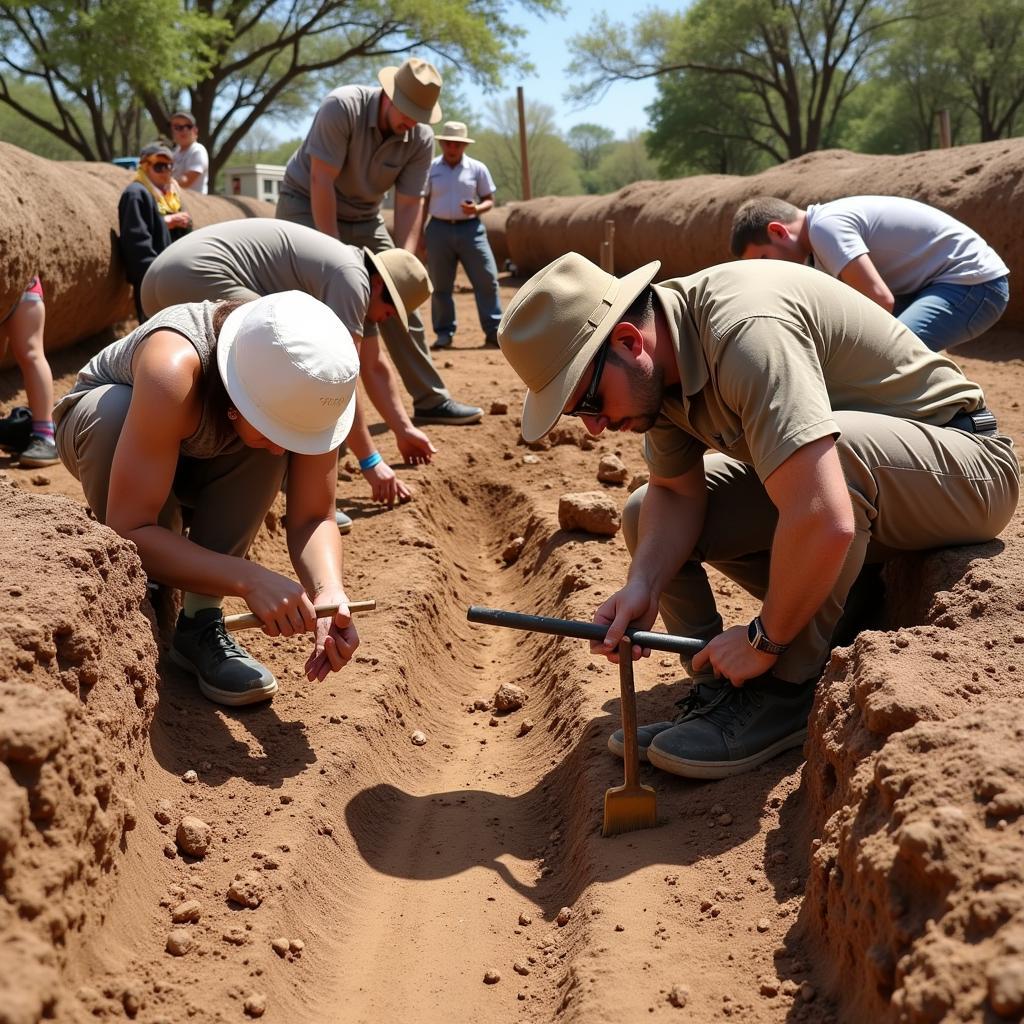The pursuit of understanding our past often leads us to the doors of Archaeological Research Institutes. These institutions are dedicated to uncovering, preserving, and interpreting the physical remains of past cultures. Their work offers invaluable insights into the lives, beliefs, and innovations of civilizations long gone, painting a vivid picture of human history.
What Makes Archaeological Research Institutes Tick?
Archaeological research institutes are more than just repositories of ancient artifacts; they are bustling hubs of intellectual curiosity and scientific endeavor. Let’s dig deeper into what defines these institutions:
- Research: At the heart of these institutes lies a commitment to rigorous research. Teams of archaeologists, historians, anthropologists, and scientists collaborate on projects spanning various geographic regions and historical periods. From meticulous excavations to cutting-edge laboratory analysis, they strive to extract every bit of knowledge from the remnants of the past.
- Education: Many archaeological research institutes play a crucial role in shaping future generations of archaeologists. They offer academic programs, workshops, and training opportunities, equipping aspiring researchers with the skills and knowledge needed to excel in this fascinating field.
- Conservation: Preserving the past for future generations is a paramount concern. These institutes are at the forefront of developing and implementing conservation techniques to protect fragile artifacts and sites from the ravages of time and environmental factors.
- Public Engagement: Bridging the gap between academia and the public is another key function. Institutes achieve this through exhibitions, public lectures, publications, and interactive programs, bringing the wonders of archaeology to life for a wider audience.
Delving into the World of Archaeological Research
The work undertaken by archaeological research institutes is as diverse as the history they uncover. Here’s a glimpse into some of their key areas of focus:
- Prehistoric Archaeology: This branch delves into the vast expanse of human history before written records. Researchers piece together the puzzle of our earliest ancestors, examining stone tools, cave paintings, and skeletal remains to understand their culture, migration patterns, and evolution.
- Classical Archaeology: Focusing on the civilizations of ancient Greece and Rome, classical archaeologists breathe life into these iconic cultures. Excavating temples, theaters, and homes, they illuminate the art, politics, and daily life of these ancient societies.
- Underwater Archaeology: The depths of our oceans and lakes hold a treasure trove of submerged history. Underwater archaeologists explore shipwrecks, submerged cities, and other underwater sites, using specialized equipment and techniques to uncover the secrets hidden beneath the waves.
- Experimental Archaeology: In this hands-on approach, researchers attempt to replicate ancient technologies and practices. By building ancient tools, experimenting with ancient farming methods, or recreating ancient structures, they gain a deeper understanding of the challenges and ingenuity of past peoples.
 Archaeological Fieldwork in Progress
Archaeological Fieldwork in Progress
Why Archaeological Research Matters
In a world often focused on the present and future, why is the study of the past so important? Here are just a few reasons why archaeological research institutes play a vital role:
- Understanding Our Origins: Archaeology offers a window into our collective past, helping us trace the roots of our societies, languages, and beliefs. It sheds light on the long journey of human existence, from our humble beginnings to our present-day complexities.
- Learning from the Past: By studying past civilizations, we can gain valuable insights into the challenges and triumphs of human societies. Examining the rise and fall of empires, the development of technologies, and the impact of environmental changes can offer lessons for navigating the present and shaping a better future.
- Preserving Our Heritage: The tangible remnants of the past are finite and irreplaceable. Archaeological research institutes act as stewards of our shared history, working tirelessly to conserve and protect archaeological sites and artifacts for future generations to appreciate and learn from.
FAQs About Archaeological Research Institutes
What qualifications do I need to work at an archaeological research institute?
Most research positions require a minimum of a master’s degree in archaeology or a related field. Many researchers go on to pursue doctoral degrees, especially for specialized roles.
How can I get involved in archaeology without a formal degree?
Many institutes offer volunteer opportunities, participate in archaeological digs, or attend public lectures and events. You can also support archaeological research by becoming a member of an institute or donating to their programs.
center for archaeological research
What are some of the biggest challenges facing archaeological research today?
Funding constraints, looting, and site destruction due to development are major threats. Climate change also poses a significant challenge, with rising sea levels and extreme weather events threatening to damage or destroy vulnerable archaeological sites.
Unraveling the Mysteries of the Past
Archaeological research institutes stand as beacons of knowledge, illuminating the depths of human history. Through meticulous research, dedicated conservation efforts, and engaging public outreach, they keep the past alive, reminding us of the enduring power and profound complexities of human experience. By supporting and engaging with these institutions, we actively participate in the ongoing quest to understand our shared past and shape a more informed future.
For those captivated by the allure of the past and eager to delve into the world of archaeological research institutes, numerous resources are available to quench your thirst for knowledge. Explore the websites of prominent institutes, delve into archaeological publications, or attend a lecture by a renowned archaeologist.
Remember, the journey into the past is a continuous exploration, and each discovery brings us closer to understanding the intricate tapestry of human history.